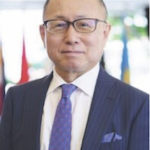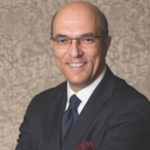
Building a career with impact in CSR
Creative and ambitious people that can help businesses shape and deliver their CSR agendas are in demand, says Lakshmi Woodings. Discover what careers in CSR involve and the skills you’ll need to succeed


The way business schools compete is changing. Those that can demonstrate their positive influence on society are increasingly able to stand out from the crowd, in the eyes of prospective students, employers, and other stakeholders.
Business Impact set out to learn more and share examples of how business schools across the global BGA network are striving to make a positive impact on their graduates, communities, and the natural environment.
This article considers how business schools are making a positive impact on the communities in which they operate. Interviewee respondents represent business schools in France, Japan, Egypt, Belgium, Switzerland, and Canada.
How is your business school making a positive impact on the community/communities in which it operates?
Yasmina Kashouh, DBA candidate at Ascencia Business School and Faculty Member at Collège de Paris International: Collège de Paris is a French network of 25 schools specialising primarily in business and management. The group now has almost 40,000 students enrolled in continuing education. The main goal is to make high-quality education available to as many people as possible throughout the world.
It has, for example, a partnership with the association, Universités & Réfugié.e.s (UniR) that works to improve access to higher education for refugees and asylum seekers in France. Today, the project is expanding, as it also includes support for the Validation of Experience (VAE) for migrants who already have professional experience abroad, as well as online or distance learning courses.
We have also developed a new concept of tokenisation built on blockchain technology related to payments. Today, payment is one of the most important aspects of distribution. It is very difficult to pay school fees in nations where the domestic currency is unstable or illiquid. To provide as many students as possible with access to education, we want to use blockchain technology, specifically cryptocurrency payments. We are in the process of developing a token for the distribution of education, called ‘Talent’. The idea is that this token could be used for international payments, tuition fees, investments for student projects, and so on. The aim of the initiative is to create a valuable coin for the education and integration of international students around the world and for the introduction of new payment methods.

Steven De Haes, Dean, Antwerp Management School: Our master’s students are engaged in community projects, as part of their education. They cooperate with local organisations to address issues such as social inequality, access to public services, poverty, climate change, sustainable use of materials, and so on. Often on a small but very practical scale, the aim of these projects is to make a real and concrete difference by using students’ managerial talents for the benefit of a local community or a specific target group.

Nicola Jackman, Head of Academics, Geneva Business School: As a Swiss business school with a student body that represents more than 100 different nations, we ensure that all our programmes have three fundamental principles: sustainability, accountability, and responsibility (leadership) which are further supported by our mentorship approach. To further assist our students and their communities, we are launching an Entrepreneurial Foundation Hub through which students can seek financial support for their projects, as well as access to a knowledge pool, composed by practitioners from different areas and countries.

Kenji Yokoyama, Dean of External Relations, NUCB Business School: NUCB Business School is located in the midst of Nagoya’s Central Industrial Area. NUCB has been at the centre of human resource development for the industrial area [to the extent that] it is said that the industrial area has developed together with the development of NUCB.

Sherif Kamel, Dean, The American University in Cairo School of Business: The school seeks to generate a positive and measurable social impact. It understands and values the invaluable importance of the UN SDGs’ (sustainable development goals) integration into curriculum, research and community development activities and services.
For instance, the school in collaboration with the UN Principles for Responsible Management Education (PRME) has recently launched the PRME Africa chapter as part of the third AUC School of Business Forum.

This article originally appeared in the print edition (May 2022-July 2022) of Business Impact, magazine of the Business Graduates Association (BGA).

Creative and ambitious people that can help businesses shape and deliver their CSR agendas are in demand, says Lakshmi Woodings. Discover what careers in CSR involve and the skills you’ll need to succeed

As an impactful business school, adopting a responsible approach to business management is essential, for both the institution and its students alike. In this article,

Drawing on Apple and Patagonia as examples, The University of Law Business School’s Stuart Ailion considers the merits of strategies that combine ethical outlooks with profit making
For questions about editorial opportunities, please contact:

